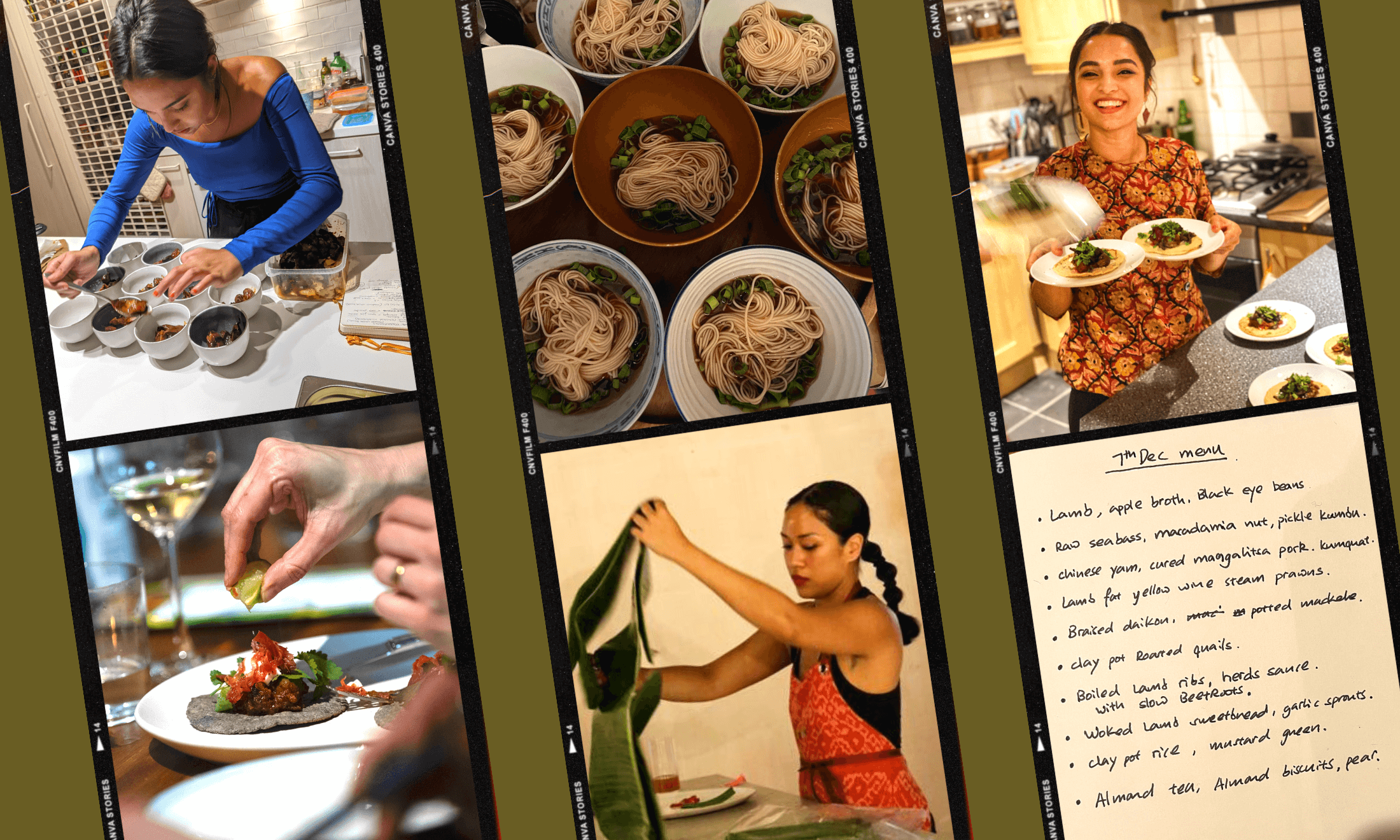
Illustration by Khadija Said
Every year, Muslims around the world observe the month of Ramadan during the ninth month of the Islamic Calendar. Ramadan is a month of observance and gratitude and for most practicing Muslims, this takes the form of abstaining from food and drink between the hours of sunrise and sunset. Ramadan is a beautiful time of year and an opportunity to connect with God and your religion, but it can also be very challenging for those isolated from their communities, as well as those who are unable to fast and join in with certain activities. For people struggling with their mental health, and in particular those battling eating disorders, Ramadan can often be the loneliest, most testing time of the year.
A lot of attention is given to food during Ramadan – if you’re not abstaining from it, then you’re eagerly anticipating it – and for someone battling a difficult relationship with food, this can create a very triggering and toxic environment. Many sufferers report both their restrictive and binging behaviours to increase during Ramadan, which is why most recovering Muslims choose not to engage with the fasting element of this month. Fasting can be the perfect disguise for your eating disorder, as during Ramadan, not eating becomes normal and no longer something that is frowned upon. This is perhaps why it is so easy to slip back into disordered behaviours without those around you noticing. It becomes difficult to differentiate whether you are fasting for God or fasting for your eating disorder, and the whole process of this can be incredibly overwhelming to manage.
Many Muslims in recovery do later deem fasting as too dangerous and risky for them, and so choose not to participate in it, but this too comes with its own tests and difficulties. So much of the joy experienced during this holy month can come from the shared meals you have with your loved ones, and missing out on this can be heart-breaking. It can be hard to explain to your family what you’re dealing with, especially if, like many eating disorder sufferers, you present yourself as being healthy.
“It can be difficult to differentiate whether you are fasting for God or fasting for your eating disorder”
Recovery exists in many stages and for most people, and mental and physical wellbeing do not always follow the same timeline. There isn’t necessarily a correlation between your weight and your mental health during your recovery, and sometimes the most difficult mental battles occur after weight restoration. This in itself can be difficult to understand within our communities, let alone within the context of Ramadan. It can seem like an impossible task to explain that whilst your physical body is well, you are still unwell mentally and therefore not in the optimal health required to fast. In these moments, it is essential to remind yourself that your struggle, and your illness, is still valid.
Fasting can be practised healthily if you adequately nourish yourself during the times you are allowed to eat. The key word in that statement, however, is healthily. If this nourishment comes with the guilt and shame that is so heavily associated with disordered thoughts, then that still isn’t healthy. If fasting triggers binging behaviours or encourages unhealthy restriction for you personally, then it isn’t safe or advisable at all. All medical professionals – be they Muslim or not – will advise against fasting at any point in your recovery and even after you have recovered, as it is simply too much of a risk. So much of recovery is dependent on maintaining a meal plan and regular sustenance, which is why missing even one meal can have such detrimental mental impacts. Your recovery and wellbeing will always come first, and if you delve deeper into the Quran, you will only find further proof of this.
“It can seem like an impossible task to explain that whilst your physical body is well, you are still unwell mentally and not in optimal health to fast”
There are other ways to observe Ramadan that are equally as valid as fasting, and it is important to remind yourself that you are not any less of a Muslim if you are unable to fast. Pray more, be more grateful, give to charity – if that option is available you – but do not force yourself to undertake something that will only cause you more damage. Practice more self-compassion and be tolerant with yourself. Be more mindful of the way you talk to yourself and to others – this month is also about reflecting on our behaviours and making an effort to change them if needs be. Ramadan is a test for everyone and is, therefore, a vital time to show more kindness to yourself. Rely on the support that is available to you and do not punish yourself if that support network is not always your family. Occupy your time with the things that make you happy, bring you closer to God, and ultimately help you survive a very difficult time of year.
Organised religion can be a beautiful, unifying thing, but true spirituality will always come from within. Religion is best when it is personal and when the connection you make with your maker/s comes from you. If you believe that everything in your life is a part of God’s plan, then surely you must also believe that God is aware of your struggles and your battles. Ramadan is the perfect time to open up that dialogue between yourself and God and ask for God’s guidance and love. Religion should aid your recovery, not make it worse. Strengthening your relationship with God should only help you strengthen your recovery too and it is important to remind yourself of that often during Ramadan.









